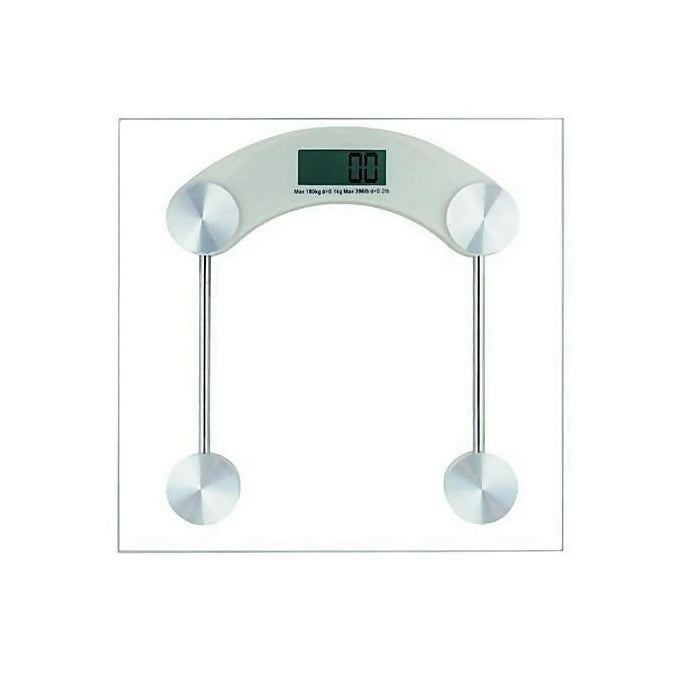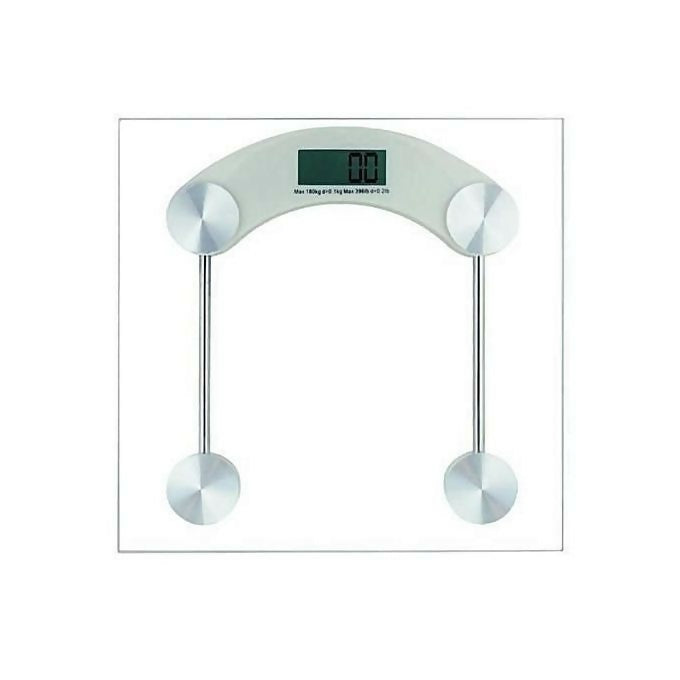1
/
of
1
Jayvie
Personal Scale
Personal Scale
Regular price
KSh2,510
Regular price
KSh2,735
Sale price
KSh2,510
Shipping calculated at checkout.
Quantity
Couldn't load pickup availability
Features:
-
Weight Capacity:
- Most personal scales have a weight capacity ranging from 300 to 400 pounds (136 to 181 kg), catering to various users.
-
Measurement Units:
- Personal scales typically offer measurements in pounds (lbs), kilograms (kg), or stones, allowing users to choose their preferred unit.
-
Display Type:
- Digital Display: Many modern scales feature a clear LCD or LED display that shows weight readings prominently.
- Analog Display: Traditional scales may have a dial for weight measurement, appealing to users who prefer a classic design.
-
Accuracy and Precision:
- High-quality personal scales offer precise measurements, often within 0.1 to 0.2 pounds (0.05 to 0.1 kg), ensuring reliable readings.
-
Design:
- Slim and Compact: Many scales are designed to be sleek and low-profile, making them easy to store and fit into tight spaces.
- Stylish Aesthetics: Available in various colors and materials (glass, plastic, metal) to match home decor.
-
Additional Features:
- BMI Calculation: Some scales can calculate Body Mass Index (BMI) based on height and weight input.
- Body Composition Analysis: Advanced models measure body fat, muscle mass, and water percentage using bioelectrical impedance technology.
- Memory Function: Some digital scales can store multiple users' weights and track progress over time.
-
Battery Operated:
- Most personal scales run on batteries (often AA or AAA), with some models featuring rechargeable batteries.
-
Non-Slip Surface:
- A textured or rubberized surface prevents slipping during use, ensuring safety and stability.
Benefits:
-
Health Monitoring:
- Regularly using a personal scale helps individuals track weight changes, promoting awareness of health and fitness goals.
-
Motivation:
- Seeing progress on a scale can motivate individuals to stick to their diet and exercise plans, fostering healthier habits.
-
Easy to Use:
- Personal scales are straightforward and require no technical knowledge—simply step on to get an instant weight reading.
-
Home Convenience:
- Having a scale at home provides convenience for quick weigh-ins without needing to visit a gym or clinic.
-
Versatile:
- Suitable for various users, including fitness enthusiasts, individuals on weight-loss journeys, and those managing health conditions.
Use Cases:
-
Home Use:
- Personal scales are commonly used in bathrooms or bedrooms for daily or weekly weight tracking.
-
Fitness Goals:
- Ideal for individuals who are working on weight loss, muscle gain, or overall fitness, providing a tool to monitor progress.
-
Health Management:
- Useful for individuals with health concerns that require regular weight monitoring, such as those with diabetes or heart conditions.
-
Family Use:
- Many scales can store multiple users’ weights, making them suitable for families to track each member’s health.
-
Athletic Training:
- Athletes often use personal scales to ensure they are meeting weight requirements for their sport or to assess body composition changes.
Care Instructions:
-
Cleaning:
- Wipe the scale with a damp cloth to remove dirt or spills. Avoid using harsh chemicals, especially on glass surfaces.
-
Battery Maintenance:
- Check and replace batteries as needed to ensure the scale functions correctly. Some models may have low-battery indicators.
-
Calibration:
- Periodically calibrate the scale according to the manufacturer’s instructions to ensure accuracy, especially after moving it or if it shows inconsistent readings.
-
Placement:
- Place the scale on a flat, hard surface for accurate readings. Avoid using it on carpets or uneven surfaces, which can affect measurements.
Share
No reviews


